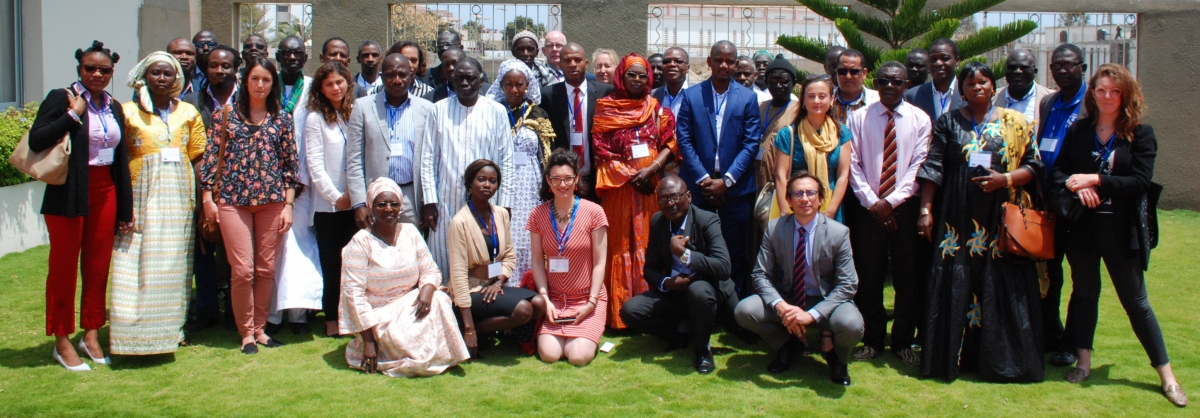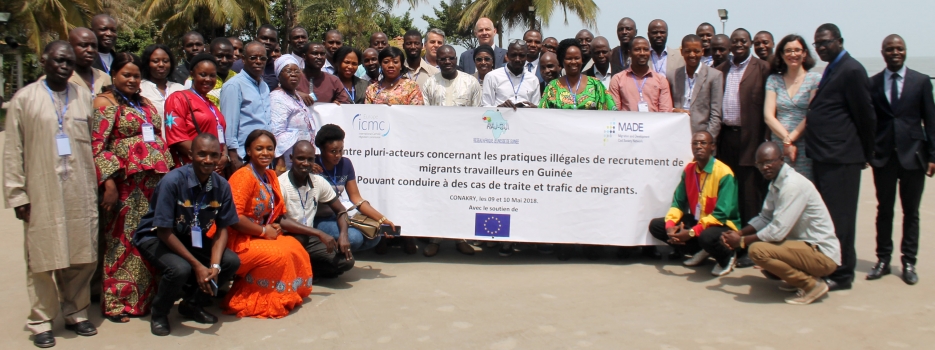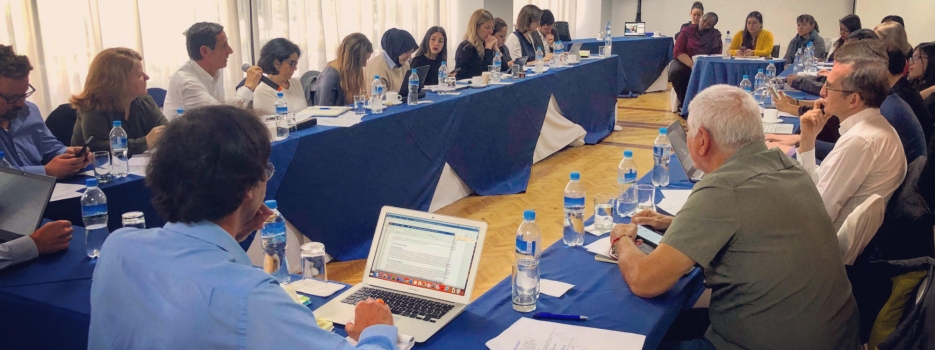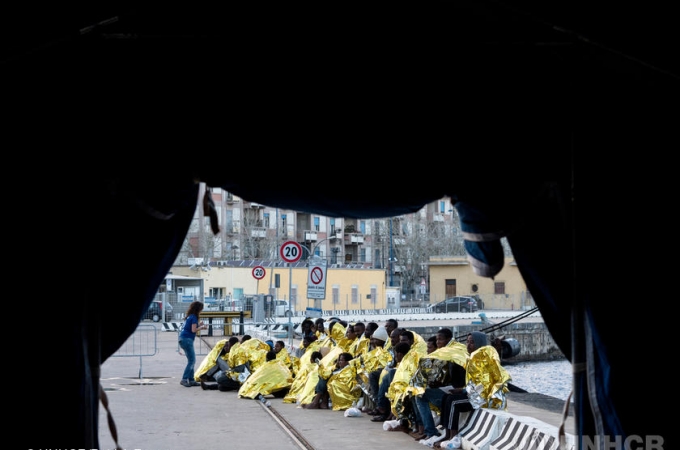In 2016, almost 10,000 Senegalese citizens were registered in Europe after having crossed the Mediterranean Sea. Photo: Migrants and refugees from Africa land at the Port of Messina in Sicily. ©UNHCR/Patrick Russo.
Migrant smuggling is a booming industry worldwide — and for a reason. Millions of persons need or wish to move in search of a better life, but legal access to desired destinations is shrinking. Many who cannot legally enter their countries of choice resort to trusting those who can help them circumvent obstacles and restrictions.
According to the European Union Ambassador to Senegal Joaquin Gonzalez-Ducay, some 65,000 people across Europe and Africa are engaged in migrant smuggling, the business of moving people across borders for profit. Ambassador Gonzalez-Ducay shared the figure during a consultation of government, United Nations and civil society representatives held in mid-April in Dakar.
Organized by the International Catholic Migration Commission (ICMC) Europe office and DIADEM (Diaspora, Développement, Education, Migrants) Senegal, the consultation gathered some 60 participants who discussed research findings on illegal recruitment practices in Senegal that may lead to migrant smuggling and trafficking.
Migrant smuggling is always a sordid and dangerous enterprise, often reaching the level of human trafficking, with victims tricked or coerced into situations of exploitation and abuse — for instance when they incur large debts to recruitment agencies, brokers, and sometimes their own employers.
Experts argue that such practices are inevitable without profound reforms to global migration regimes and to the organization of the global economy. However, important steps can be taken to minimize vulnerability and harm.
The 24-25 April multi-stakeholder consultation in Dakar identified some of those steps, particularly in the area of national legislation and strategies to counter illegal recruitment practices.
Participants made a series of recommendations, including measures to increase awareness of the risks related to irregular migration and better prepare and inform migrants prior to departure. They also proposed to reform legislative frameworks and to strengthen consular protection, as well as to develop sustainable return programs.

Organizing migration
Although exact data is hard to come by, it is estimated that thousands of Senegalese have tried to migrate to the Gulf countries and to Europe in the past decades and continue to do so today. In 2016, almost 10,000 Senegalese citizens were registered in Europe after having crossed the Mediterranean Sea.
“Since in Senegal we have a population that migrates fundamentally because they seek work opportunities, we need to develop a labor migration policy,” says DIADEM President Mr. Badara Ndiaye. “The goal is not to discourage migration, but to organize it,” he adds.
Many of those trying to reach Europe do not make it. After the harrowing journey through the Sahara and “hell-like” detention conditions in Libya, many decide to go back to their country through a voluntary repatriation scheme proposed by the UN Migration Agency (IOM). According to the organization, Senegalese men are at high risk of being trafficked, imprisoned and sold in Libya.
For Ambassador Sory Kaba, Director General of Senegalese Abroad, African governments need to put in place legal frameworks in order to prevent reckless people from doing business with the lives of migrants.
One of the outcomes of the Dakar consultation is an ambitious training program. In late 2018 and 2019, local and regional experts will provide trainings for civil society organizations working in the region. Topics will include consular protection, international and domestic instruments for the protection of labor migrants against human trafficking, and the sharing of best practices for support and assistance to victims of trafficking, among others.
“The links between recruitment and human smuggling and trafficking are not sufficiently recognized and addressed,” says Agnès Bertrand, Project Manager of ICMC Europe’s Migration and Development West Africa program. “Too many women end up in horrible and abusive conditions, including forced labor, under the false pretense of being offered jobs,” she adds.
The Migration and Development West Africa program aims to promote intra-regional mobility, strengthen the engagement of the African diaspora in national development plans, and protect the rights of migrant workers seeking jobs abroad.
Another consultation with the same goals and methodology as those implemented in Senegal in April is taking place in Guinea this week.
Protecting migrant workers’ rights
The protection of migrant workers is one of the demands that ICMC and civil society organizations are putting forward to States during the intergovernmental negotiations leading to the adoption of the Global Compact on Migration.
Summarized in the document Now and How: Ten Acts for the Global Compact, the civil society vision for migration and development includes the promotion of inclusive labor markets and decent work opportunities (Act 1), the enhancement of labor mobility schemes for workers at all skills levels (Act 2), and the promotion of decent working conditions and labor rights (Act 4).
The document’s Act 4 explicitly calls for an end to single-employer sponsorship systems by 2022 and for the prosecution of human traffickers and abusive recruitment agents, ensuring that all States enforce sanctions by 2024. Ethical recruitment and employment is another key demand within Act 4.
Labor migration is also one of the key issues addressed by the Vatican’s 20 Action Points for the Global Compacts. Point 4, 5 and 6 are particularly relevant for migrant workers in both countries of origin and of destination. Many demands, such as fair employment practices and access to justice, converge with the Ten Acts for the Global Compact, testifying to the importance of advocacy from all sides.
Participants agreed to reform legislative frameworks, strengthen consular protection and develop sustainable return programs in order to protect migrants from trafficking.





